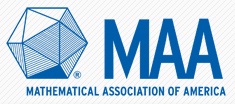Special Session Abstracts
Deadline to submit abstract: Friday, February 23, 2018.
- Problems in Differential Equations and Nonlinear Analysis, Organizer, Israel Ncube (Alabama A&M University)
The overarching goal of the proposed session is to bring together researchers and students working in the areas of differential equations, nonlinear analysis, and the many applications of these areas. Differential equations are routinely used to model and to study many types of systems arising in Science and Engineering, in particular. By bringing together researchers working in this area, it is envisaged that fruitful collaborations may come about as a consequence. Part of the goal of the proposed session is to showcase the range of applications of differential equations and nonlinear analysis in tackling some of the pressing problems of our time.
- Mathematical Experiences and Projects in Business, Industry and Government (BIG), Organizers, Caroline Maher-Boulis (Lee University), David Stone (Georgia Southern University), Jan Rychtar (University of North Carolina at Greensboro).
There are many problems in business, industry and government that are best tackled by mathematicians. There has been a growth in the recent years in the number of undergraduate students who get involved in solving BIG problems, or take part of a mathematical internship program. We seek presenters from all groups: faculty, undergraduate/graduate students, business partner to share examples of such experiences. In addition to disseminating these experiences, this session will raise awareness of students who haven’t had the experience on what to expect in BIG as mathematicians.
- Mathematics Identities and Inequalities,Organizer, Wei-Kai (Bryan) Lai (University of South Carolina, Salkehatchie)
Mathematical identities and inequalities are useful and powerful tools. They have been applied in many mathematical areas. New identities and inequalities are constantly developed in many researches as well. In mathematical competitions and mathematical journal problem sections, many problems also require proving or applying identities or inequalities. In this section we invite any presentations with:
- development of new identities or inequalities
- new proof, generalization, or refinement of old identities or inequalities
- application of identities or inequalities in new researches
- pedagogical experience of introducing identities and inequalities in intro courses
- other identity or inequality related topics.
- Engaging Activities in Coding Theory, Cryptography, and Number Theory, Organizers: Anne Ho (University of Tennessee), Gretchen Matthews (Clemson University), Malcolm Rupert (Clemson University)
Engaging activities inside and outside of the classroom can greatly enhance students’ mathematical experiences. For this session, we invite speakers to share creative ideas from their classes, math clubs, math circles, and outreach events on the topics of number theory, coding theory, and cryptography. Discussions about the successes and challenges for implementing activities are encouraged. Undergraduate speakers are welcome.
- Enhancing Personalized Learning in Mathematics through Non-Disposable Assignments, Organizer, Marcela Chiorescu (Georgia College and State University)
Disposable assignments according to David Wiley are assignments that students complain about doing them and faculty complain about grading them. Aside from their pedagogical benefit, these assignments add no value to the world. If we change these assignments into ones which actually add value to the world, then the students and faculty might feel different about their time and effort invested in them. Non-disposable assignments, then, are the ones which students feel connected to, value, and are proud to share with their peers. Examples of these can be: students create openly license supplemental materials, learning objects, test banks, worked examples, infographics, worksheets, 3D printed materials with corresponding information, study guides or exam questions. Students can also edit or create Wikipedia articles, contribute to a class website or blog with content, comments or problem-solving strategies. This session will include talks about designing and implementing this type of assignments.
- Active Learning in Undergraduate Mathematics, Organizers: Draga Vidakovic*, (Georgia State University), Harrison Stalvey, (University of Colorado Boulder), Darryl Chamberlain Jr. (University of Florida), Aubrey Kemp (Georgia State University), Leslie Meadows (Georgia State University), Adam Kellam (Georgia State University)
This session will present innovative instructional strategies that foster students’ active learning in undergraduate mathematics. We welcome proposals including, but not limited to: theory-based instruction, flipped classrooms, inquiry-based learning, emporium models, teaching with technology, and cooperative learning. Presentations may report on the results of qualitative or quantitative data analyses, although presentations are not required to involve rigorous research results.
- Special Session on Research Projects in Discrete Mathematics, Organizers, Mark Budden (Western Carolina University) and Andrew Penland (Western Carolina University)
This Special Session will focus on Discrete Mathematics, including graph theory, combinatorics, and related topics in number theory. These areas are particularly suitable to undergraduate research projects and we encourage speakers to give talks accessible to an undergraduate audience
